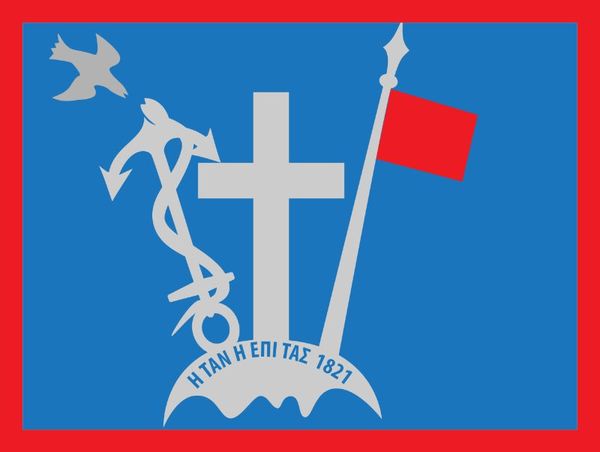Hydra Island
No vehicles - get around by donkey!
Hydra is an island in the Saronic Gulf, picturesque, aristocratic and cosmopolitan. As all of the Saronic islands, it is a very popular destination for Athenians, especially during weekends. It owes its name to its abundant waters, gushing from generous springs during ancient times. It has an important marine history and tradition. Restored manors, the old picturesque port with its loopholes and canons, museums, monasteries, the marine school, compose the island’s picture which betrays its important historical course. The city of Hydra, the only city of the island where car transportation is forbidden. It is outstretched on two rocky hills and it boasts traditional houses with tiled roofs and blue doors and windows that capture the eye.
Hydra at a glance
It is probably the only place where not only cars, but motorbikes and bicycles are prohibited.
Hydra offers a satisfactory touristic infrastructure, with lots of hotels, guest houses, apartments, rooms and houses to let, most of them in restored traditional dwellings and manors. The museums, churches, monasteries, and manors of the island are definitely worth a visit. There are a lot of organized beaches, sandy or rocky, with blue, crystal clear waters, ideal for swimming or Spearfishing. Besides swimming and fishing, you can also enjoy sea sports and activities. Do not forget to take a ride with a donkey through the narrow streets of Hydra or use it for your excursions inland. It is an unforgettable experience.
“Greece is a good place to look at the moon, isn’t it? You can read by moonlight You can read on the terrace You can see a face As you saw it when you were young“ Leonard Cohen
How to get to Hydra
Hydra island is connected by boat to Athens via Piraeus. In Hydra, you can also get off the port of Ermioni, Aegina, Poros, Porto Heli and Spetses with Hellenic Seaways. Ferry routes to Hydra are increased during the summer season to meet increased demand.
Transportation
From Piraeus to Hydra there are ferries daily (duration:3,15 hours).For more information contact the Coastguard of Piraeus tel. (01) 451.1311-19.
For the local connections of Hydra contact the Coastguard of Hydra tel. (0298) 52.279.
- Hydra: Good shelter; Limited fuel; Water on quay; Night life
- Mandraki: Poor shelter; Anchored off; No fuel or water; Taverns
Hydra Beaches
The water taxis and the boats you find in the harbor lead to the beautiful beaches with crystal clear waters. Usually, there are taverns with fresh fish nearby.
Vlychos beach is one of the first to visit. Bitsi and Mandraki beaches are easily accessible by taxi, while for those who do not want to leave Chora, the Cave in Hydronetta and Avlaki are a bit further, offering a decent alternative for swimming and the prospect of sun protection, as well as a cool juice in the shade of coffee just above them. As for the beaches of Hydra, you can choose among dozens of choices, with sand and pebbles or rocks.
Spilias is a rocky beach with very deep waters, Avlaki a beautiful pebble beach, Vlychos combines swimming and good food in the traditional taverns of the area and Bisti, next to the pine forest, is a good choice for those who want an organized beach with crystal clear waters.
Hydra Sights
The most important sights of Hydra island are the twin monasteries of Saint Euphrax and Prophet Elias as well as the monastery of Agia Triada.
Mansion of Lazaros Kountourioti
It stands on a hill above the harbor. It is open to visitors and houses folklore exhibits and a gallery with the works of Pericles and Constantine Byzantios.
Mansion of Pavlos Kountourioti
An imposing mansion with at least ten bedrooms and very interesting furnishings. A typical sample is the dining room of the 1800s with mythologically painted chairs.
Historical Archive-Hydra Museum
On the eastern side of the harbor, near the Port Authority, there are exhibits from the Balkan Wars, from the 1st and 2nd World Wars, a gallery with works of painters and heirlooms from the time of the Revolution, as well as a record of rare books and manuscripts.
Ecclesiastical and Byzantine Museum
Exposed vestments, heirlooms and icons.
Recent History of Hydra
Most of the second half of the 15th century, Hydra started being inhabited by refugees seeking shelter from Turkish persecution. The barren grounds of Hydra made the inhabitants to seek breadwinning from the sea, and, thus, many became excellent sailors.
In 1821, with the beginning of the Greek Revolution for Independence from the Turks, Hydra had about 130 battleships, which constituted two-thirds of the total Greek fleet. The well-built mansions on the island still remain erect to show the glory that the island once had (at the end of the 18th century and the beginning of the 19th).
Night Life
Hydra offers a wide variety of pubs, bars, restaurans and taverns.


